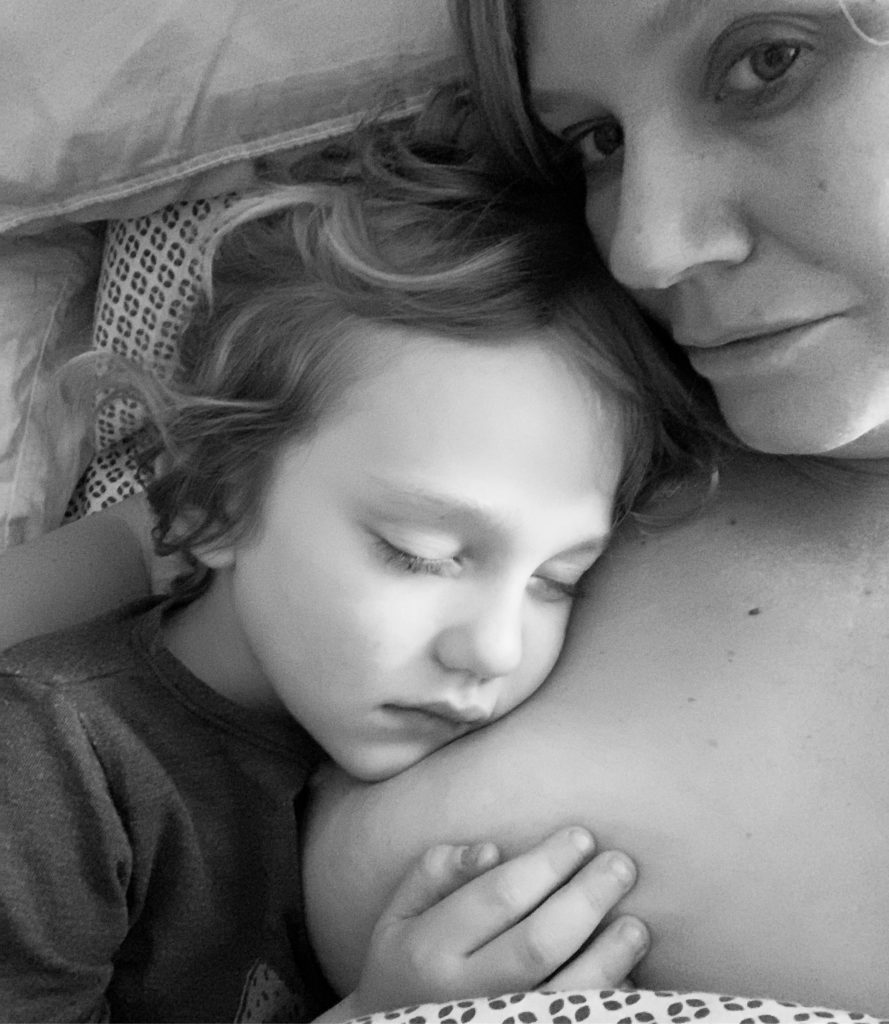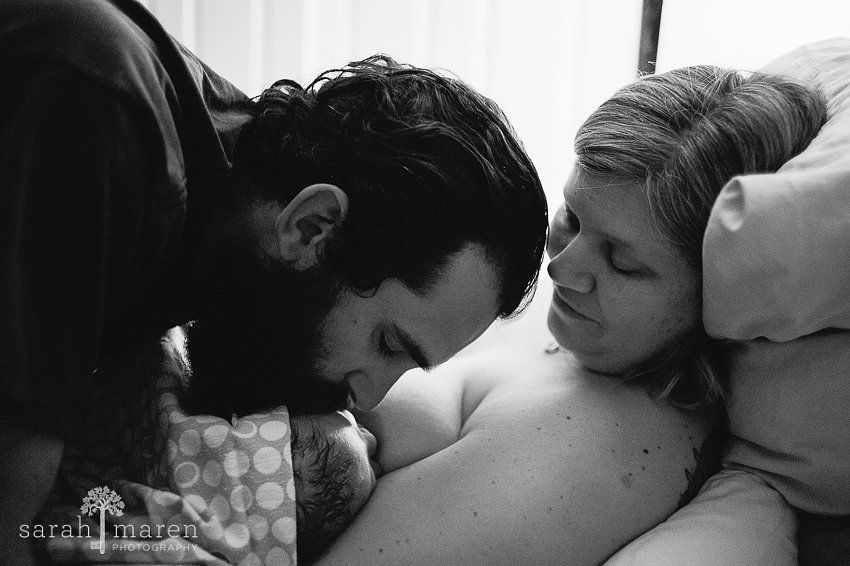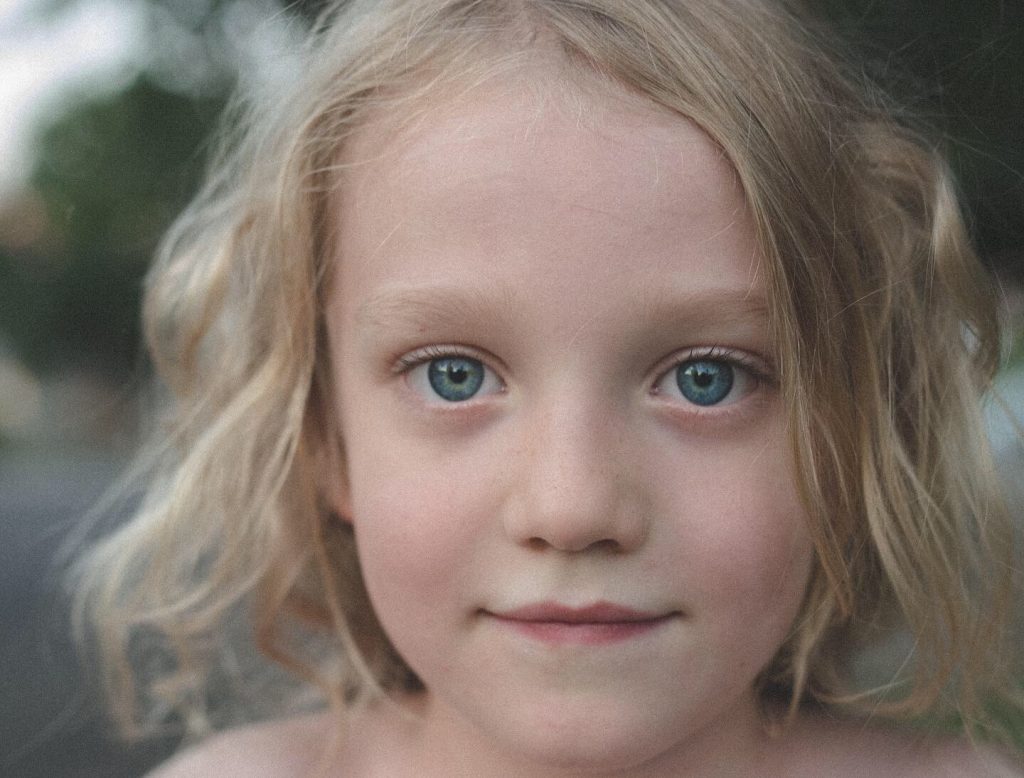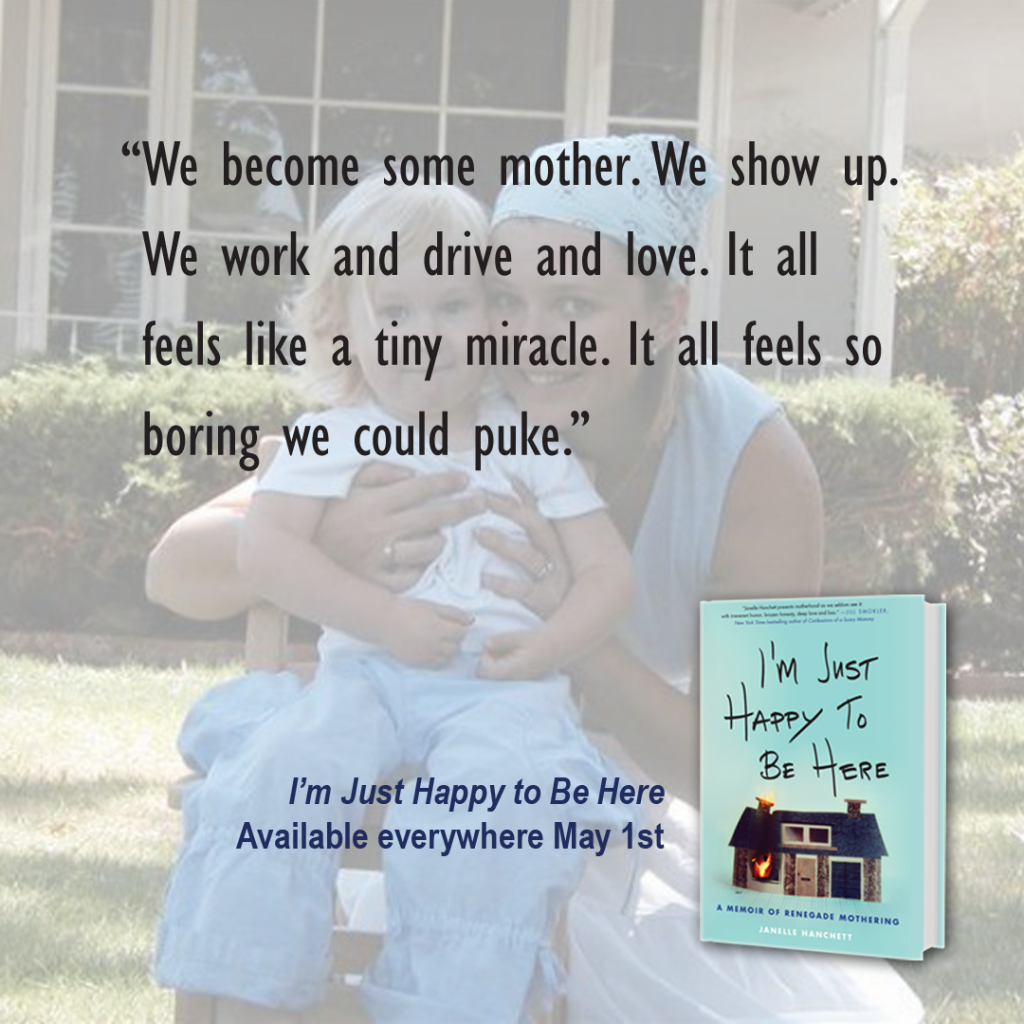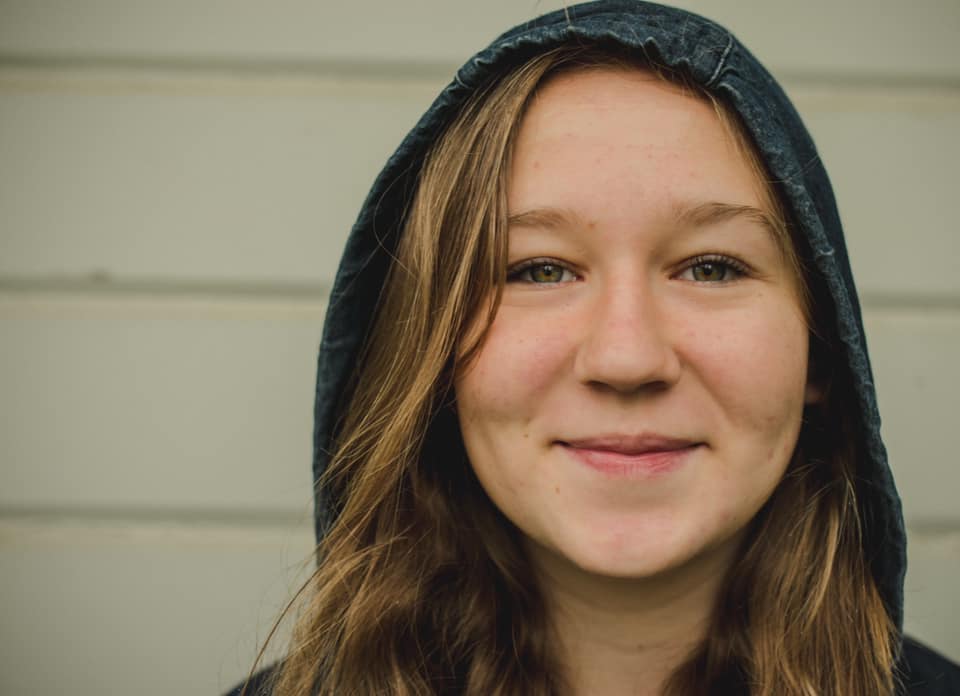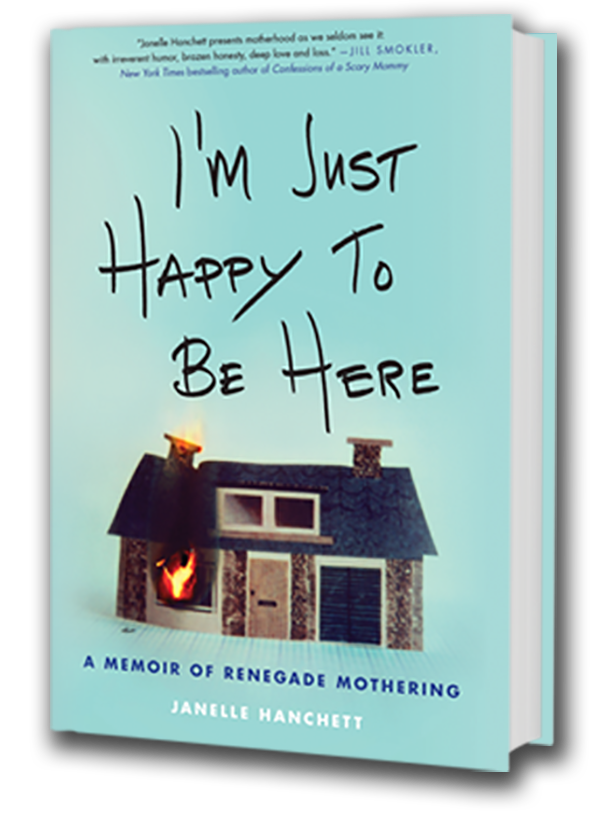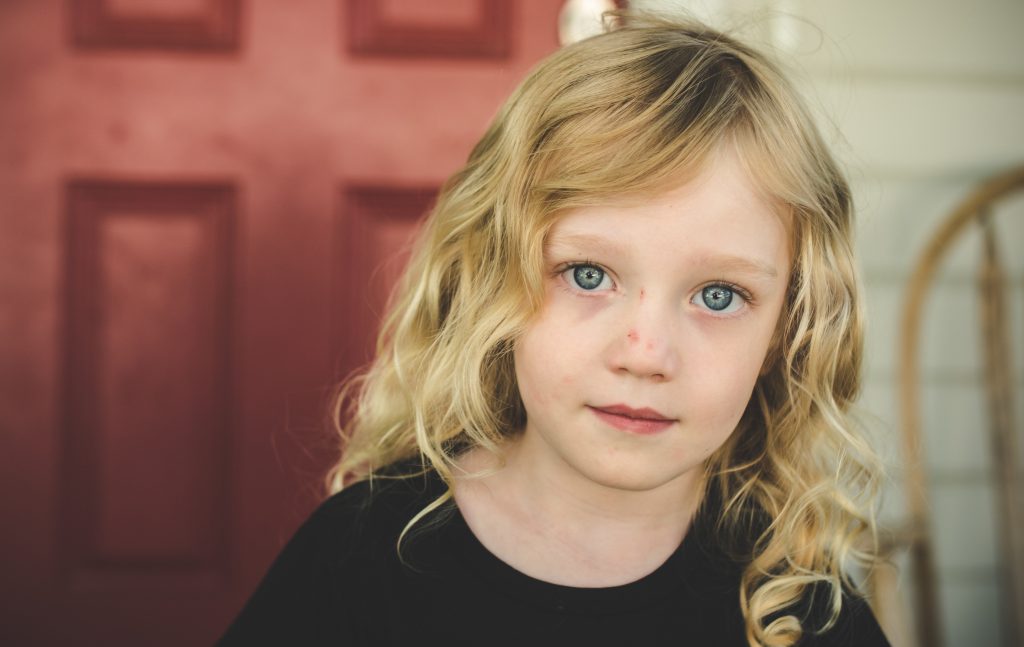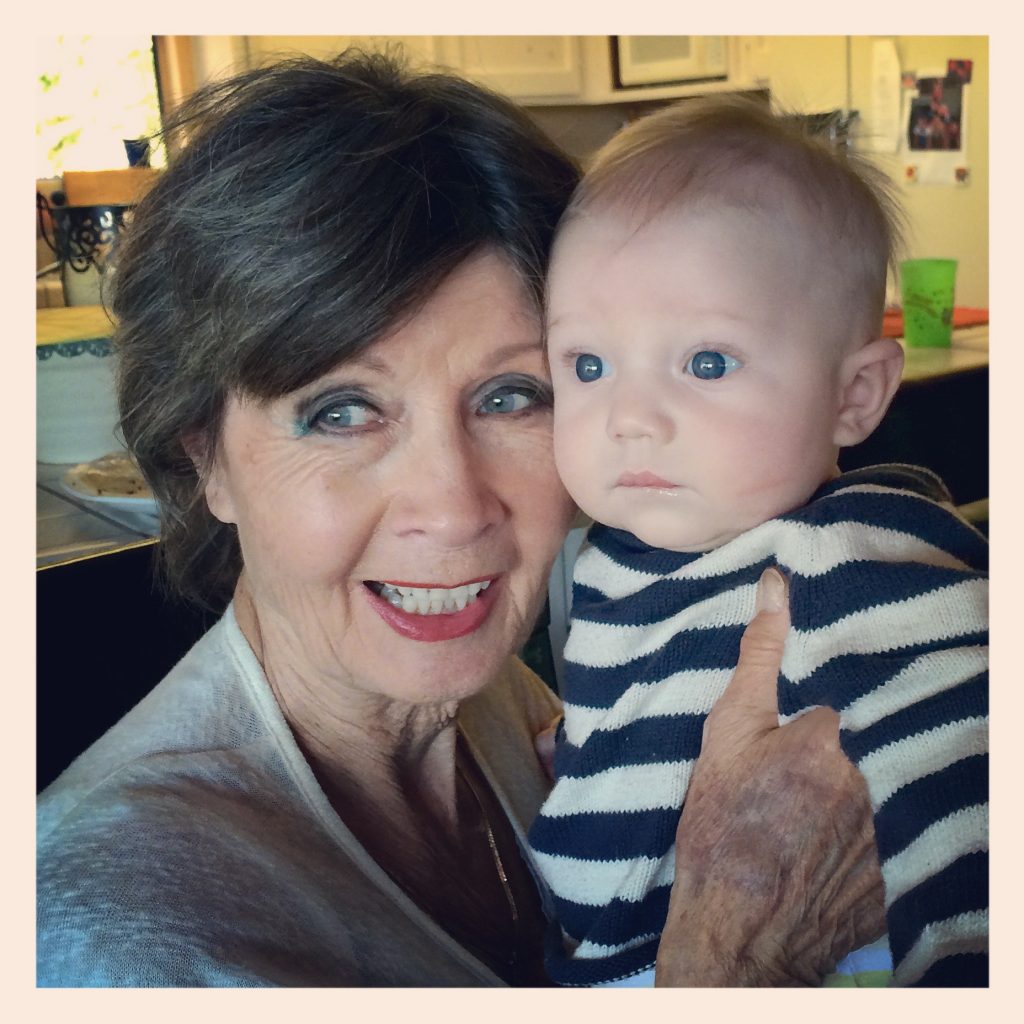I became a mother eighteen years ago and it seems like every day since then, somebody has told me to “enjoy every moment.” I’ve moved from vague pity to nonchalant disinterestedness all the way to outright disdain in response to the advice.
Early on, I thought it was just kinda sad that the women looking at me with a knowing smile were just so, you know, old. Seasoned mothers whose kids had grown, looking at me, twenty-two-years old, all fresh and shit, and there they were with their Old People Regrets.
It’s funny how in your twenties, the suggestions of “old people” are distant whispers from strange humans you’ll never become. It’s strange how we don’t yield to them, recalling how, if all goes well, we’ll be them one day, and maybe they’ve learned something.
Or maybe other people do that. Maybe other people hear these words and think “I shall listen to you because you probably know shit.” I don’t.
But my special talent is somehow always believing myself the exception to the rule. Sure, you look back and wish you’d “enjoyed every moment” because “it goes so fast.” But I won’t. Fuck off.
Why? No clue. How exactly would I be different? No clue. Please don’t bring reason into this.
But something happened to me the day the baby born on November 21, 2001, left our home to finish high school in America, and I found myself surrounded with three of my four kids, feeling always just a little off. She may come here for college. She may stay in California. The letting go snuck up on me, the massive distance. It sounds ridiculous to say.
Something changed in me the morning I saw in her brow a nervousness and sorrow that looked a little like being let down. The day I saw her steel herself and keep on going to the airport—her purse, a bag that used to be mine, crossing her body over her jean jacket, beneath two braids she’d made that morning while singing along in the bathroom to Johnny Cash, and I listened from the next room, my head in my hands, crying, enjoying every moment of her voice.
It all dissolved that morning, what my family had been for so long, and at my own hand, or the passing of time, if there’s a difference.
It was all suddenly different and I saw it. Rocket, fourteen-years-old, standing taller than me. One teenager gone, one taller than me. My nine-year-old, the way she worries what the kids at school think. The way she still has little projects: notes to her friends, drawings, shortbread cookies made all by herself.
Ava used to do that.
And I looked at my little one, Arlo, five-years-old. The tail end. The last whisper of little guy. The imaginative play. The curling against your body almost like they’re three. The way they fit in your arms just barely.
There’s a chance I’m a little weird around him now.
I ask him to sing me his school songs and notice the lisp he’ll lose someday. I watch him play with airplanes and knights and dragons and call Mac over to watch him in his little world. Look at him.
“I know,” Mac says, sighing. He whacks my arm. I tell him I hate him. We both look like we’re about to cry. I think this is how mature adults handle emotion.
I could listen to Arlo’s stories for hours. It’s not hard. Keep speaking. Keep going. Tell me more of your plans.
When I’m cooking and he wants to stir, even when I’m tired and fed up and just want it to be over, I tell him to grab a stool and show him how to hold the spoon and remind him that the pot is hot and I kiss his head when he looks at me and I don’t really ever say, “No, not tonight.”
When he hears me in the bath and asks to join, just when I begin to relax, I remember the way I used keep the door locked and wonder how they always found me. I still wonder that, but it makes me smile. I keep the door cracked. “Yes,” I say. “Just give me ten minutes in here alone.” I say it because I really want him to come in with me. I don’t mind at all.
I want to watch him play Batman under the water. I want to feel his little hug against me. And when he’s there, I’ll remember how I labored with him in the bathtub, how I brought him with me in the bath as a newborn, an infant, a toddler, and how he used to nurse partially submerged, and I’d lay a warm washcloth over the part of his body exposed to the air.
I cuddle with him on the couch and put my phone away. He sleeps in our bed just about every night and I stick my face an inch from his and watch his little hands do nothing under his chin. He falls asleep on my arm and I smell his head, his neck, stare at his bare feet curled behind him.
I tell Mac to look. Look at our baby.
So here I am, world, finally, doing what you told me. I’m enjoying every minute! I’m all in, assholes. SOAKING THIS SHIT UP. It’s not that I’m uniformly joyful, never annoyed, never yelling. And I don’t think that’s what they meant when they told us “it goes so fast.” I think they meant, be aware always how quickly this will end.
That’s where I am now, and thank god it wasn’t always this way. Thank god I didn’t live all these years in this condition—every minute some butterfly just touching down, some joy about to fly away.
I wouldn’t have wanted to live all those years in the full knowledge of what they would mean to me when they were gone, because there was a freedom there, an energy—we were both young.
I don’t think you can be told when your first baby is six-months-old—when you’ll never sleep again and your life has become a pattern of monotony you quite possibly hate and you’re talking too long to the checkout guy and wondering when the baby will crawl—you can’t be told “enjoy every moment; it goes so fast,” because that understanding comes when the non-crawling baby waves at you from a passenger seat on her way into her own life. It comes from the pain of the other side.
It comes when you’re snapped into the finality of it, because there really is a day, you know, when they leave. An actual day. It is very concrete. They are around every day, and then they are not.
I couldn’t have lived with this kind of pull on my heart. I couldn’t have taken it all this seriously. I couldn’t have endured the work of those early years if I had to stop every fifteen minutes to enjoy my five-year-old’s nose. The way his curls fall over his eye. The blocks he left in my bed.
Who can live like that? In some state of awe at the little dude jumping off a branch, watching him ride a bike like it’s a fucking symphony. Who can hold this much devotion to something so fleeting, an ache burning always somewhere, a silent grip on what isn’t yours, an hourglass on the counter mocking your old sense of permanence.
I didn’t ask for this shit. I didn’t learn it or guilt or self-talk my way into it. It came one morning when I wasn’t ready, when my first baby sucked the air out of the room and flooded her siblings in light.
I’ve never been very good at learning things without pain. Never been good at listening to others and anticipating and being smart about it. But maybe we learn what we need to learn as life presents itself. Maybe we see more when life becomes more, or less. Maybe that’s how it should be.
I won’t tell a new mother to enjoy every moment. I’ll watch her not enjoying them and remember when I had the luxury.
I’ll let him sleep on me as long as he wants, and love it all. When I knew what it was, and when I didn’t.
